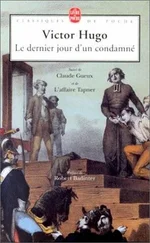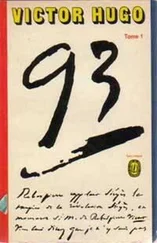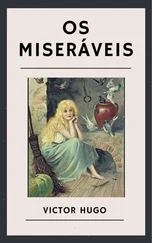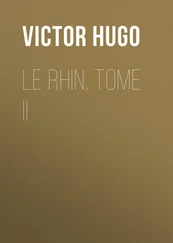Victor Hugo - Ninety-Three
Здесь есть возможность читать онлайн «Victor Hugo - Ninety-Three» — ознакомительный отрывок электронной книги совершенно бесплатно, а после прочтения отрывка купить полную версию. В некоторых случаях можно слушать аудио, скачать через торрент в формате fb2 и присутствует краткое содержание. Жанр: literature_19, foreign_antique, foreign_prose, на английском языке. Описание произведения, (предисловие) а так же отзывы посетителей доступны на портале библиотеки ЛибКат.
- Название:Ninety-Three
- Автор:
- Жанр:
- Год:неизвестен
- ISBN:нет данных
- Рейтинг книги:3 / 5. Голосов: 1
-
Избранное:Добавить в избранное
- Отзывы:
-
Ваша оценка:
- 60
- 1
- 2
- 3
- 4
- 5
Ninety-Three: краткое содержание, описание и аннотация
Предлагаем к чтению аннотацию, описание, краткое содержание или предисловие (зависит от того, что написал сам автор книги «Ninety-Three»). Если вы не нашли необходимую информацию о книге — напишите в комментариях, мы постараемся отыскать её.
Ninety-Three — читать онлайн ознакомительный отрывок
Ниже представлен текст книги, разбитый по страницам. Система сохранения места последней прочитанной страницы, позволяет с удобством читать онлайн бесплатно книгу «Ninety-Three», без необходимости каждый раз заново искать на чём Вы остановились. Поставьте закладку, и сможете в любой момент перейти на страницу, на которой закончили чтение.
Интервал:
Закладка:
When the vivandière ceased speaking, the woman muttered to herself, —
"Our neighbor's name was Marie-Jeanne, and it was our servant who was Marie-Claude."
Meanwhile Sergeant Radoub was reprimanding the grenadier.
"Silence! You frighten madam. A man should not swear before ladies."
"I say this is a downright butchery for an honest man to hear about," replied the grenadier; "and to see Chinese Iroquois, whose father-in-law was crippled by the lord, whose grandfather was sent to the galleys by the curé, and whose father was hung by the king, and who fight, – zounds! – and who get entangled in revolts, and are crushed for the sake of the lord, the curé, and the king!"
"Silence in the ranks!" exclaimed the sergeant.
"One may be silent, sergeant," continued the grenadier; "but it is all the same provoking to see a pretty woman like that running the risk of getting her neck broken for the sake of a calotin." 2 2 An opprobrious epithet for an ecclesiastic. – TR.
"Grenadier," said the sergeant, "we are not in the Pike Club. Save your eloquence!" And turning to the woman, "And your husband, madam? What does he do? What has become of him?"
"Nothing; since he was killed."
"Where was that?"
"In the hedge."
"When?"
"Three days ago."
"Who killed him?"
"I do not know."
"How is that? You don't know who killed your husband?"
"No."
"Was it a Blue, or a White?"
"It was a bullet."
"Was that three days ago?"
"Yes."
"In what direction?"
"Towards Ernée. My husband fell. That was all."
"And since your husband died, what have you been doing?"
"I have been taking my little ones along."
"Where are you taking them?"
"Straight along."
"Where do you sleep?"
"On the ground."
"What do you eat?"
"Nothing."
The sergeant made that military grimace which elevates the moustache to the nose. "Nothing?"
"Well, nothing but sloes, blackberries when I found any left over from last year, whortle-berries, and fern-shoots."
"Yes, you may well call it nothing."
The oldest child, who seemed to understand, said:
"I am hungry."
The sergeant pulled from his pocket a piece of ration bread, and handed it to the mother.
Taking the bread, she broke, it in two and gave it to the children, who bit into it greedily.
"She has not saved any for herself," growled the sergeant.
"Because she is not hungry," remarked a soldier.
"Because she is a mother," said the sergeant.
The children broke in.
"Give me something to drink," said one.
"To drink," repeated the other.
"Is there no brook in this cursed wood?" said the sergeant.
The vivandière took the copper goblet suspended at her belt together with a bell, turned the cock of the can that was strapped across her shoulder, and pouring several drops into the goblet, held it to the children's lips.
The first drank and made a grimace.
The second drank and spit it out
"It is good, all the same," said the vivandière.
"Is that some of the old cut-throat?" asked the sergeant.
"Yes, some of the best. But they are peasants."
She wiped the goblet.
"And so, madam, you are running away?" resumed the sergeant.
"I couldn't help it."
"Across the fields? With no particular object?"
"Sometimes I run with all my might, and then I walk, and once in a while I fall."
"Poor countrywoman!" said the vivandière.
"They were fighting," stammered the woman. "I was in the middle of the firing. I don't know what they want. They killed my husband, – that was all I know about it."
The sergeant banged the butt of his musket on the ground, exclaiming, —
"What a beast of a war! In the name of all that is idiotic!"
The woman continued, —
"Last night we went to bed in an émousse. "
"All four of you?"
"All four."
"Went to bed?"
"Went to bed."
"Then you must have gone to bed standing." And he turned to the soldiers.
"Comrades, a dead tree, old and hollow, wherein a man can sheathe himself like a sword in a scabbard, is what these savages call an émousse. But what would you have? All are not obliged to be Parisians."
"The idea of sleeping in the hollow of a tree, – and with three children!" exclaimed the vivandière.
"And when the little one bawled, it must have seemed queer to the passers-by, who could see nothing, to hear the tree calling out, 'Papa! mamma!'"
"Fortunately, it is summer-time," said the woman, with a sigh.
She looked down resigned, with an expression in her eyes of one who had known surprising calamities.
The silent soldiers surrounded this wretched group. A widow, three orphans, flight, desolation, solitude, the rumblings of war on the horizon, hunger, thirst, no food but herbs, no roof but the sky.
The sergeant drew near the woman and gazed upon the nursing infant. The baby left the breast, turned her head, and looked with her lovely blue eyes on the dreadful hairy face, bristling and fierce, that was bending over her, and began to smile.
The sergeant drew back, and a large tear was seen to roll down his cheek, clinging to the end of his moustache like a pearl.
He raised his voice.
"Comrades, I have come to the conclusion that this battalion is about to become a father. Are you willing? We adopt these three children."
"Hurrah for the Republic!" shouted the grenadiers.
"So be it!" exclaimed the sergeant; and he stretched out both hands over the mother and the children.
"Behold the children of the battalion of the Bonnet-Rouge!" he said.
The vivandière jumped for joy.
"Three heads under one cap!" she cried.
Then she burst out sobbing, and embraced the widow excitedly, saying, —
"She looks like a rogue already, that little girl!"
"Hurrah for the Republic!" repeated the soldiers.
"Come, citizeness," said the sergeant to the mother.
BOOK II
THE CORVETTE "CLAYMORE."
I
ENGLAND AND FRANCE UNITED
In the spring of 1793, when France, attacked at one and the same time on all her frontiers, experienced the pathetic diversion of the downfall of the Girondists, the following events were taking place in the Channel Islands. In Jersey, one evening on the first of June, about an hour before sunset, from the lovely little Bay of Bonnenuit, a corvette set sail in that foggy kind of weather dangerous for navigation, and for that very reason better suited for escape than for pursuit. The ship, although it was manned by a French crew, belonged to the English squadron which had been stationed to watch the eastern point of the island. The prince of Tour d'Auvergne, of the house of Bouillon, commanded the English fleet, and it was by his order, and for a special and pressing service, that the corvette had been detached.
This corvette entered at the Trinity House under the name of the "Claymore," and, apparently a freight vessel, was in point of fact a man-of-war. She looked like a heavy and peaceable merchant-ship; but it would not have been wise to trust to that, for she had been built to serve two purposes, – cunning and strength; to deceive if possible, to fight if necessary. For the service on hand that night the freight between decks had been replaced by thirty carronades of heavy caliber. Either for the sake of giving the ship a peaceable appearance, or possibly because a storm was anticipated, these thirty carronades were housed; that is, they were firmly fastened inside by triple chains, with their muzzles tightly braced against the port-holes. Nothing could be seen from the outside. The port-holes were closed. It was as though the corvette wore a mask. These guns were mounted on old-fashioned bronzed wheels, called the "radiating model." The regular naval corvettes carry their guns on the upper deck; but this ship, built for surprise and ambush, had its decks clear, having been arranged, as we have just seen, to carry a masked battery between decks. The "Claymore," although built in a heavy and clumsy fashion, was nevertheless a good sailer, her hull being one of the strongest in the English Navy; and in an engagement she was almost equal to a frigate, although her mizzen-mast was only a small one, with a fore and aft rig. Her rudder, of an odd and scientific shape, had a curved frame, quite unique, which had cost fifty pounds sterling in the Southampton shipyards. The crew, entirely French, was composed of refugee officers and sailors who were deserters. They were experienced men; there was not one among them who was not a good sailor, a good soldier, and a good royalist. A threefold fanaticism possessed them, – for the ship, the sword, and the king.
Читать дальшеИнтервал:
Закладка:
Похожие книги на «Ninety-Three»
Представляем Вашему вниманию похожие книги на «Ninety-Three» списком для выбора. Мы отобрали схожую по названию и смыслу литературу в надежде предоставить читателям больше вариантов отыскать новые, интересные, ещё непрочитанные произведения.
Обсуждение, отзывы о книге «Ninety-Three» и просто собственные мнения читателей. Оставьте ваши комментарии, напишите, что Вы думаете о произведении, его смысле или главных героях. Укажите что конкретно понравилось, а что нет, и почему Вы так считаете.












